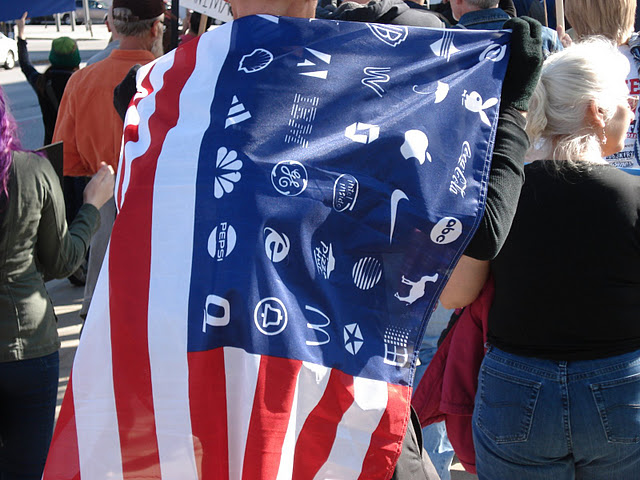George Lakoff frames American conservatism versus OWS
Linguist George Lakoff has set forth frames for American conservatism:
Conservatives have figured out their moral basis and you see it on Wall Street: It includes: The primacy of self-interest. Individual responsibility, but not social responsibility. Hierarchical authority based on wealth or other forms of power. A moral hierarchy of who is "deserving," defined by success. And the highest principle is the primacy of this moral system itself, which goes beyond Wall Street and the economy to other arenas: family life, social life, religion, foreign policy, and especially government. Conservative "democracy" is seen as a system of governance and elections that fits this model.Versus that which appears to be the frame of the Occupy Wall Street movement:
Democracy starts with citizens caring about one another and acting responsibly on that sense of care, taking responsibility both for oneself and for one's family, community, country, people in general, and the planet. The role of government is to protect and empower all citizens equally via The Public: public infrastructure, laws and enforcement, health, education, scientific research, protection, public lands, transportation, resources, art and culture, trade policies, safety nets, and on and on. Nobody makes it one their own. If you got wealthy, you depended on The Public, and you have a responsibility to contribute significantly to The Public so that others can benefit in the future. Moreover, the wealthy depend on those who work, and who deserve a fair return for their contribution to our national life. Corporations exist to make life better for most people. Their reason for existing is as public as it is private.

